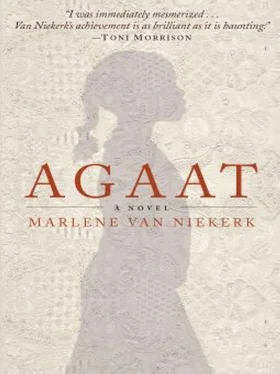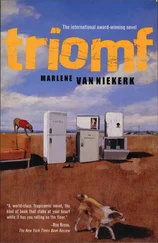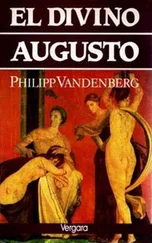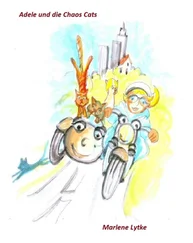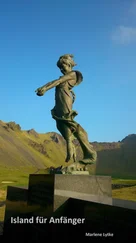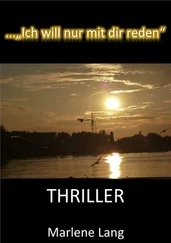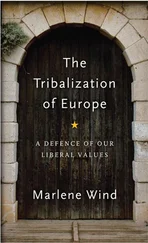She presses with her finger, presses, press, press, press so that it bends back, the forefinger of the strong hand, presses on all the places.
Load, powder in the pan, ramrod in the barrel, take aim, the old muzzle-loader, I feel myself coming into the line of fire. Perhaps it’s a signal-cannon instead. Who’s going to hear it all along the kloofs over the mountain to the Castle, Agaat?
Back room! Green door! Agaat thunders.
Huptebup, huptebup, huptebup. Here we have a goosestep with tuba thrusts, out of the sherry bottle, the legs lifted high, the toes pointed, the Third Reich come to Grootmoedersdrift, the head with the jaw surmounted by the cap turned sharp right and then left as she marches past to and fro at the foot of my bed, the duster a bayonet over one shoulder.
Mailslot! Lowroof! Candle-end!
Lockupchild! Without pot!
Shatinthecorner!
Shatupon!
Dusterstick on Agaatsarse.
Au-Au-Au!
Ai-Ai-Ai!
Neversaysorry!
Sevenyearschild.
And then?
Can-you-believe-it?
Backyard!
Skivvy-room!
Highbed!
Brownsuitcase!
Whitecap! Heartburied!
Nevertold! Unlamented!
Good-my-Arse!
Now-my-Arse! Now’s-the-Time!

How did the fire start?
Who made the rain fall out of the wrong wind?
What did Jakkie hear of what Jak said to you that morning in the garden?
And Agaat, what did she hear?
The school holidays had started and Jakkie would be coming home from Stellenbosch. You fretted about it as always. Agaat bustling about on the trot. Jak to and fro on the stoep, ready to launch another assault on some mountain or other. He wanted to leave with Jakkie that very Friday evening.
The tug-of-war over Jakkie. You could see on the child’s face how insecure it made him feel. Insecure and at the same time arrogant because he was everybody’s favourite and could twist everybody’s arm.
You went out onto the stoep.
He’ll just want to arrive in peace and enjoy eating what Agaat’s prepared for him, you said to Jak. You can go to the mountains after the weekend, can’t you, otherwise what do I see of him? And, after all, Agaat would want to talk to him a bit, she’s missed him so.
Jak said nothing, just tug-tugged at the mountaineering ropes that he was rolling up.
You always give the child hell when he comes home, you said, you’ll be presented with the bill one day!
Jak’s head was shaved as always before going on a mountaineering trip. It made his features look sharp. He looked at you wordlessly.
Things were deteriorating badly between you. After that first mountaineering trail with Jakkie in the Tradouw you had broken down. You’d never seen two such battered people. They were both of them exhausted to the point of death, full of dried blood from cuts and scratches. Fell upon their food like wolves and crawled into bed immediately. Neither of them would tell what had happened on the mountain. At last you started screaming.
You grabbed Jak by the shoulders.
Are you trying to kill him? Will you be satisfied then? If you could let his flesh rot off and pick his bones and join them together again with hinges and make yourself a boy-machine with greased gears and tinkling bells that you can throw off cliffs to your heart’s content and hoist up with ropes and hooks?
All Jak wanted to do was gather his wits but you wouldn’t let him be, you hammered on his chest with your fists there where he was lying against the pillows in the stoep room. He was too tired to do anything to you. But you saw how hard his eyes were, how thin his lips.
From then on, from 1971 on, he tried to take the child out of your hands, out of Agaat’s hands. First he had to go to boarding school in Heidelberg. And then one fine day you woke up to find that everything had been arranged for Jakkie to go to Paul Roos from Standard Seven. Science and maths he had to study, languages and music didn’t pay the rent, and he didn’t want his son to squander his life on a farm one day as he, Jak, had done.
That fire, was it in 1976? Jakkie in Standard Eight? He’d be getting a lift home for the Easter break. The rains stayed away. Warm autumn weather, gusty south-easter, everything crackling with drought, the river just about empty. Perfect conditions for a veld fire.
You were concerned about water for the sheep, about the lambs on the dry stubble-fields. About the sheep-oats that had germinated too late on account of the unusual drought in December. You were preparing to cart dry feed to the mangers. You didn’t want to drive the sheep into the cattle’s grass pasture because that was also rather meagre for the season. The river was too low for much irrigation. You wanted all hands on the farm to help with the lamb birthing. The ewes were weaker than previous years, one of the herds not yet altogether in condition after the acidosis poisoning the previous November. Ate too many loose grains of wheat on the harvested field.
And guess who had driven them in there?
Guess who first saw that they had all lain down?
Guess who then had to doctor them?
It was beginning to seem as if events were unfolding according to a design on Grootmoedersdrift.
In whose plan were you all?
What was being made clear to you?
You were all blind. You were blind. Your mouth was dry from tranquillisers. You stared at these things, and at the faces around you, at your own face in the mirror, but nothing would surrender their secrets. You knew one part of the reasons, the people around you another part. And everybody tried to solve the riddle for himself in his solitude.
That Easter, it was a critical time. You would have preferred Jakkie and Jak to stay on the farm and help look after it. After all, it was in the interests of all of you, you felt. Why did you always have to ask for support, plead for help?
Was it because of the nature of mixed farming that there was always too much to do, and would you really have to change it all if you wanted things to run more smoothly? Was Jak right about that?
How would you have to dismantle such a complex concern and reassemble it differently, with fewer components and fewer troublesome details to attend to? Who would help you to think up and plan such an upheaval?
And what would the farm look like then? Like green wheatfields? A monotonous summer? A monoculture with a general impoverishment?
That afternoon before Jakkie’s arrival. Agaat in the kitchen preparing food. Jak on the stoep with the mountaineering equipment. You in your room with your diary. That’s right, it was the Easter break 1976, you had just started a new booklet.
Writing had in any case increasingly become your way of waiting to see what would happen next. Through writing you wanted to get a grip on your times and days on Grootmoedersdrift, to scrunch up and make palpable the hours, the fleeting grain of things in your hastily scribbled sentences, connecting cause and effect in the stream of events. At least then you could later turn the pages of the diaries, forward and back, and see: This happened before that, and this and that were the first signs of a catastrophe that you wrote up only much later, and this and that were simultaneously requiring attention and not without connection, even though the connection was evident only later.
That afternoon when Jakkie was due to arrive, you were sitting and writing about your farming worries. And about how you were all waiting, each in his or her own way, for this son whom you all wanted to possess and who escaped you all, not in the first place because he was by then already becoming his own person, on the contrary, but because he was afraid, in different ways, afraid and guilty and taunting each of you, because he didn’t know how to please you all at the same time.
Читать дальше
